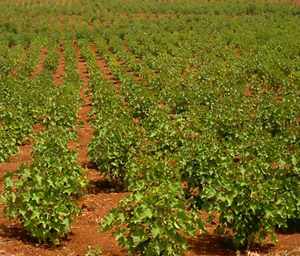Bio-diesel is an alternative fuel derived from either Soy or Jatropha, and it is big in Brazil. By 2012, the Brazilian government will mandate an 8% blend of bio-diesel. The prospect of this increased demand for bio-diesel is causing a large ramp up in the bio-diesel industry.
Brazilian Soy farms for bio-diesel are very big business. Bunge is the largest soy grower in Brazil, followed by ADM and Cargill – all are foreign companies. To make bio-diesel, soy is mechanically processed and separated into oil (used to make the bio-diesel) and soy meal (used for animal feed). Soy farming is very profitable - in addition to the 150 gallons of bio-diesel produced per hectare, farms also produce valuable animal feed as a byproduct.
Jatropha is a newer option for bio-diesel production. Jatropha is an oil seed that can produce four to five times more oil that soy, and the byproducts include medical grade glycerin, proteins from the shells, and potential carbon credits as Jotropha is a tree. The real key to Jatropha is that it grows in sandy soil that most crops cannot grow in, and it only needs a fraction of the water that soy does. This is a huge benefit. Currently, Jatropha is only being grown on about 120,000 acres in the state of Tocantins. However, there are several ideal properties in the Brazilian Northeast of Brazil that are ideal for this crop.






Comments